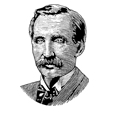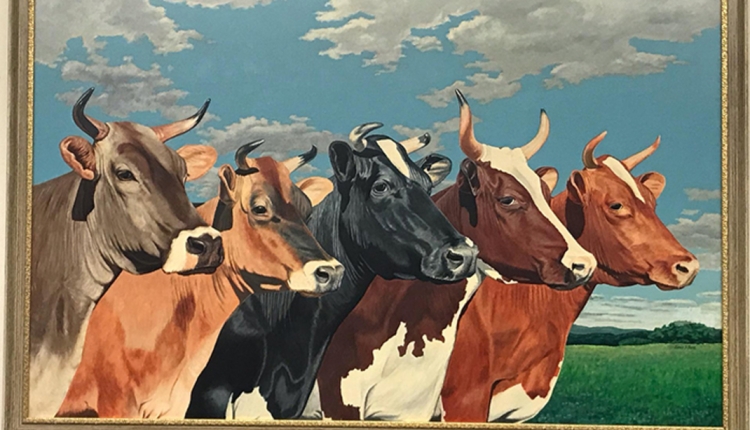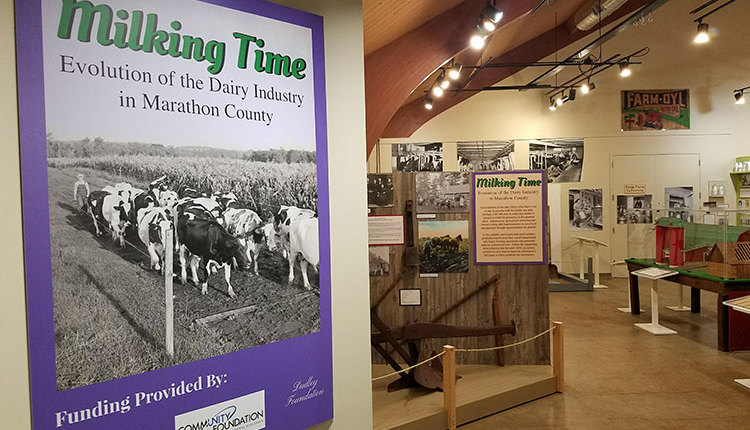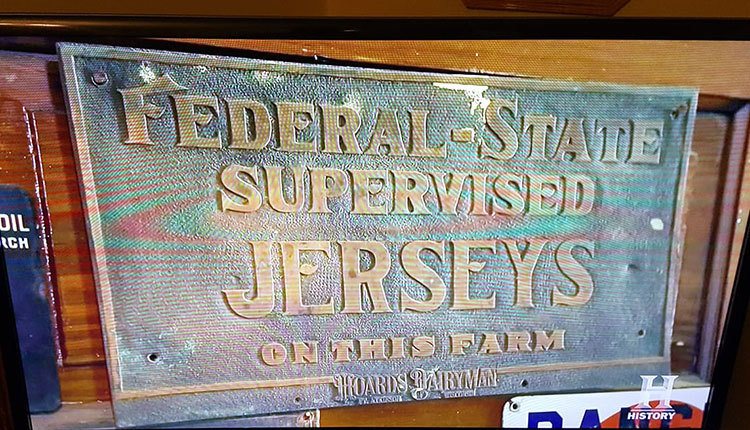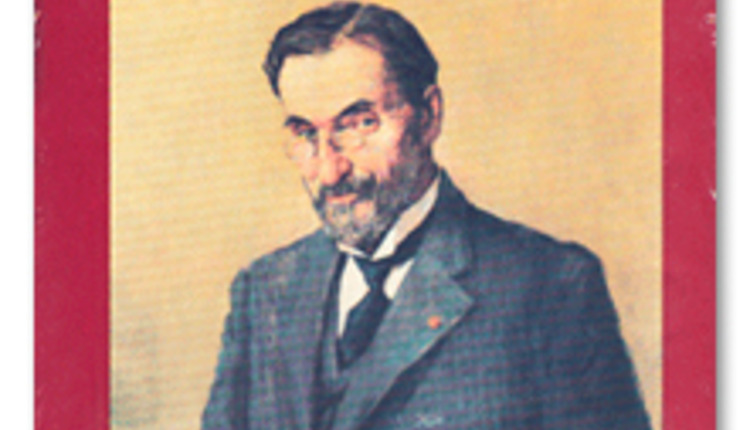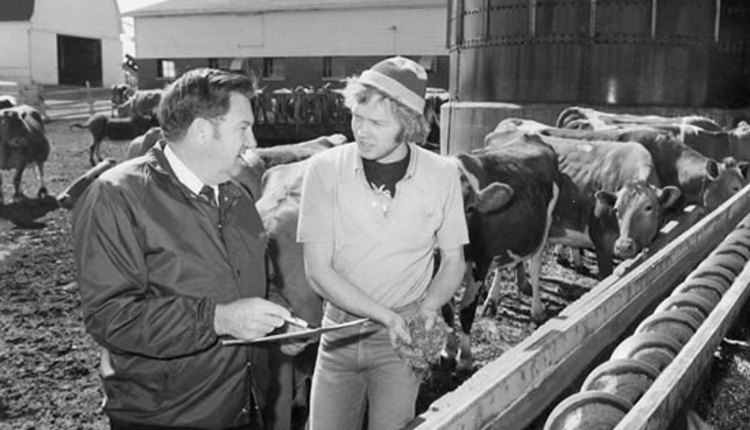
WILLIAM DEMPSTER HOARD
1836 - 1918
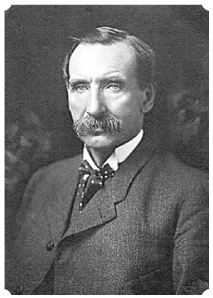 William Dempster HoardBorn in Stockbridge, New York, October 10, 1836, W. D. Hoard migrated to Wisconsin in 1857. An admirer of Lincoln, he traveled far to hear him debate and was among the first in his community to respond to Lincoln's call for troops in 1861. After joining the 4th Wisconsin Infantry (later cavalry), he was stricken with break-bone fever in 1862 and was forced to leave the service, but re-enlisted in 1864 and served through to the end of the Civil War.
William Dempster HoardBorn in Stockbridge, New York, October 10, 1836, W. D. Hoard migrated to Wisconsin in 1857. An admirer of Lincoln, he traveled far to hear him debate and was among the first in his community to respond to Lincoln's call for troops in 1861. After joining the 4th Wisconsin Infantry (later cavalry), he was stricken with break-bone fever in 1862 and was forced to leave the service, but re-enlisted in 1864 and served through to the end of the Civil War.After several minor business ventures, he launched a weekly newspaper, the Jefferson County Union, at Lake Mills, in 1870. Three years later he moved to Fort Atkinson where the newspaper has since been published.
In 1885, his crusading for a prosperous, soil-building agriculture prompted the founding of Hoard's Dairyman, the national dairy farm magazine. His qualities of leadership were quickly recognized by his state and the nation.
Upon being elected Governor of Wisconsin in 1888, he pioneered in the fight against food adulteration which was commonplace throughout the nation. The nation's first Dairy and Food Commission, which he created, became a defender in the public interest against the rapidly spreading malignancy of misbranding and adulteration of human food.
In a state populated by immigrants of Nordic origin, he defied racial and religious prejudice to secure passage of the Bennett Law requiring teaching of English in all private and public schools, a decision which was to cut short his political career.
His return to private life brought the achievements chronicled earlier. In recognition of his service to agriculture, his portrait hung in the famed Saddle and Sirloin Club in 1914. The following year, he was named by his adopted state as "Wisconsin's most distinguished citizen" at the San Francisco World's Fair.
Following his death in 1918, friends and school children, through popular subscription, erected a marble and bronze statue of him on the University of Wisconsin mall, recognizing his great contribution to general education and, specifically, the university, of which he was a leader as president of the Board of Regents.
FRANK WARD HOARD
1866 - 1939
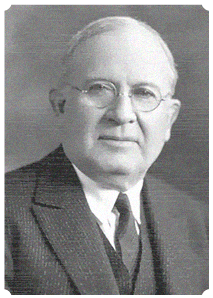 Frank Ward HoardBorn July 26, 1866, Frank Ward Hoard was, early in life, to witness the rewards and penalties of leadership. While still in law school, he became secretary to his illustrious father, who had been elected Governor of Wisconsin. After two years of successful struggle to improve education and guarantee a safe, healthful food supply for the people of Wisconsin, father and son returned to private life.
Frank Ward HoardBorn July 26, 1866, Frank Ward Hoard was, early in life, to witness the rewards and penalties of leadership. While still in law school, he became secretary to his illustrious father, who had been elected Governor of Wisconsin. After two years of successful struggle to improve education and guarantee a safe, healthful food supply for the people of Wisconsin, father and son returned to private life.Their new publishing venture had suffered severely during their absence and needed a strong hand at the helm. Frank was made business manager in 1890 and it was his firm business leadership which was to rebuild the sagging fortunes of the firm which published the Jefferson County Union and Hoard's Dairyman.
While his father heeded the manifold calls for dairy and public leadership, Frank Hoard dedicated his life to service through the business management of the magazine. With the assistance of his brothers, Halbert and Arthur, and but 4,000 subscribers, he began the long, hard task of building the fledgling magazine into a national power.
While his father made history as the "father of American dairying," Frank Hoard was "the builder." Without his devotion, Hoard's Dairyman, the lengthened shadow of his noted father, would not have been the success it proved to be. By the time of his father's death in 1918, circulation had increased to 67,000 and revenues were such as to support editorial, advertising and circulation staffs which he had long wanted but could little afford.
As he became president and general manager of the company, he put together the first real team of men who were to carry on what hitherto had been largely family effort. By the time of his passing in 1939, circulation had increased to 208,000 and the magazine had weathered World War I, the Great Depression and was still growing.
Though Frank Hoard was active throughout his life in community service, he never sought public acclaim. He refused to run for Governor, though widespread support was generated for his candidacy. Instead, he gave his entire life to building a sound institution of integrity and service.
WILLIAM D. HOARD, JR.
1897-1972
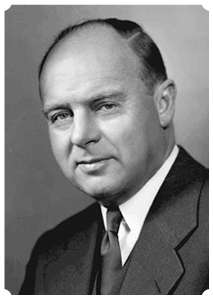 William D. Hoard Jr.Born June 8, 1897, William D. Hoard, Jr., was to become the third generation in the Hoard family to take over the leadership of the institution founded by the "father of American dairying." Longtime employees saw in him a combination of the talents of his father and grandfather.
William D. Hoard Jr.Born June 8, 1897, William D. Hoard, Jr., was to become the third generation in the Hoard family to take over the leadership of the institution founded by the "father of American dairying." Longtime employees saw in him a combination of the talents of his father and grandfather.The vigor, color and humor of the founder were evident in the grandson. As active manager of the Hoard's Dairyman Farm since the death of his grandfather, he was the one member of the family since the Governor to show a close lifetime interest in practical problems of dairy farming.
But his father's penchant for avoiding public recognition prevailed in the grandson. He had long been interested and active in public affairs, but declined all overtures to run for Governor or the United States Senate.
After becoming president and general manager of the company in 1939, circulation of Hoard's Dairyman climbed to a high of over 330,000 subscribers in every state and in every country in the world where English is spoken.
Following World War II, the advanced age and retirement of the original Hoard's Dairyman team put together by Frank necessitated a complete rebuilding of the organization. That task was completed, with a vigorous group producing new highs in circulation and advertising lineage.
Because estate and inheritance taxes are almost confiscatory, few magazines have survived following the passing of the founder, let alone three generations of the founding family. Most have had to be sold to raise funds to pay taxes. For the last four years of his life, Mr. Hoard worked intensively to assure that ". . . the company can be preserved as a leading institution in the dairy industry and in the city of Fort Atkinson and the state of Wisconsin, enjoying and fulfilling the same position and responsibilities that it now enjoys and fulfills." He died unexpectedly of an occluded ulcer on August 14, 1972. Just five weeks earlier, he had completed an estate plan which was to save the company.
